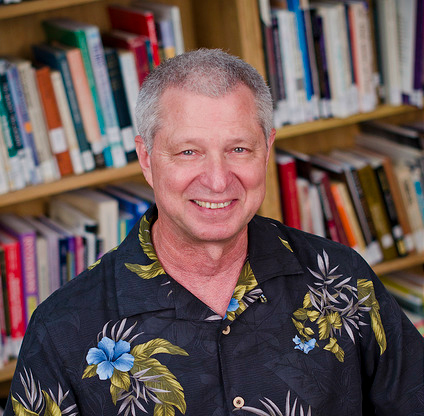 Understanding what factors create powerful teaching and learning relationships is at the heart of Dr. Harriet L. Schwartz’s work. She was already examining this as she applied for her doctorate at Antioch University’s Leadership and Change program. By the time she’d graduated, Dr. Schwartz was faculty and her inquiry had evolved with her—she had shifted her perspective as she focused on the “powerful teaching-learning interactions and relationships between faculty and students,” to that of the teacher. This question makes up the core of her book, Connected Teaching: Relationships, Power, and Mattering in Higher Education and guides her approach to teaching.
Understanding what factors create powerful teaching and learning relationships is at the heart of Dr. Harriet L. Schwartz’s work. She was already examining this as she applied for her doctorate at Antioch University’s Leadership and Change program. By the time she’d graduated, Dr. Schwartz was faculty and her inquiry had evolved with her—she had shifted her perspective as she focused on the “powerful teaching-learning interactions and relationships between faculty and students,” to that of the teacher. This question makes up the core of her book, Connected Teaching: Relationships, Power, and Mattering in Higher Education and guides her approach to teaching.
This interest in powerful teaching and learning relationships sparked after she had “teacher-mentors along the way…who saw potential in me that I didn’t yet see in myself, and who encouraged, supported, and pushed me,” she says. Now, as a teacher herself, she takes care to set an atmosphere of learning in her classroom, aiming to create a space that is “energized, student-centered, and hopeful,” and welcoming of all students, from all backgrounds. Within this context, Dr. Schwartz “works to be mindful in my interactions and relationships with students. I try to be transparent in my teaching – for example, sharing my reasons for constructing classes and assignments the way that I do. I also try – and this takes intention – to seek and truly be open to feedback from students.”
 Dr. Schwartz gives so much care to how she teaches because she “believes that relationships and our presence set the stage for teaching and learning,” especially against the backdrop of the current divisive political climate that it is “increasingly important for us as educators and leaders to try to make our spaces inclusive, relational, and growth-fostering.”
Dr. Schwartz gives so much care to how she teaches because she “believes that relationships and our presence set the stage for teaching and learning,” especially against the backdrop of the current divisive political climate that it is “increasingly important for us as educators and leaders to try to make our spaces inclusive, relational, and growth-fostering.”
During her time as a graduate student, Dr. Schwartz read Horace Mann’s quote, “Be ashamed to die until you have won some victory for humanity,” which spoke to the Jewish teaching that “all of us must do our part to heal the world.” Around the same time, Dr. Schwartz was “struck by this idea [from Greenleaf’s Servant Leadership] of leaders as trustees, as people in whom we place our trust.”
As Dr. Schwartz developed her beliefs and understanding around connected teaching, she began to apply her beliefs outside of academia by speaking up to create change in the world around her. The first time she did this, she was still in graduate school and wrote to a local mayor to get a swastika in the parking lot of her gym removed, which he did.
Later on, she used the idea of leaders as trustees to frame an op-ed she wrote when Penn State women’s basketball coach, Rene Portland, was found through a university investigation to have harassed players she thought were lesbian, that she had broken a fundamental trust that students and their parents place in athletic coaches.
 More recently, following the acquittal of the police officer who killed Antwon Rose II, a Black high school student, Dr. Schwartz wrote a letter to the editor of the Pittsburgh Post-Gazette about how white people need to address racism. The editor, however, deleted the word “white,” which sanitized her whole argument. Dr. Schwartz followed up with a much more in-depth and widely-read essay at Public Source about the need for white people to do the work to dismantle racism.
More recently, following the acquittal of the police officer who killed Antwon Rose II, a Black high school student, Dr. Schwartz wrote a letter to the editor of the Pittsburgh Post-Gazette about how white people need to address racism. The editor, however, deleted the word “white,” which sanitized her whole argument. Dr. Schwartz followed up with a much more in-depth and widely-read essay at Public Source about the need for white people to do the work to dismantle racism.
She sums up the driving force behind why she uses her voice to effect change: “I think we all have to try to do our part, in whatever is our circle of influence. I also think that in whatever ways any of us are privileged, we have to identify and challenge the ways that systems we are part of maintain their privilege. For example, I as a white person need to address racism.”
Following the impact of the Public Source article that she wrote about white people and race, Dr. Schwartz has been thinking about other work she can do as a public scholar to try to address injustice, particularly around race and poverty: “Finally, at some point, I’d like to do more research to further develop my ideas about teaching as a relational practice.”
Dr. Schwartz has shown again and again that she is as invested in positively affecting the world outside of her classroom as the one within it and the world benefits from her dedication and work.

